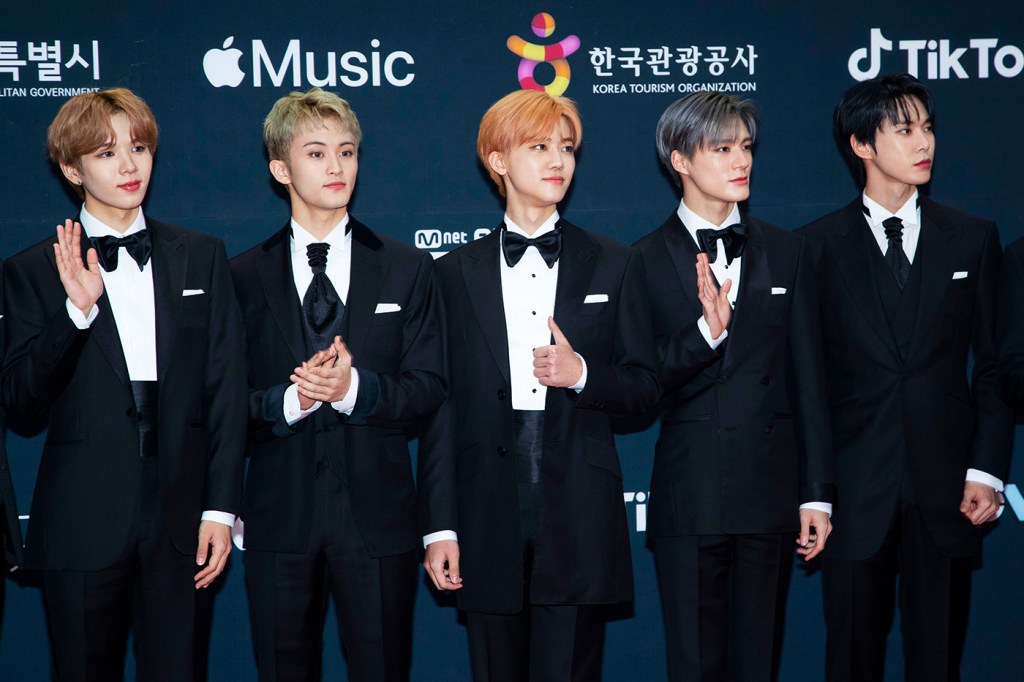China is banning “effeminate” men from being on TV

It is no secret: Gender norms—those deeply rooted societal notions of how boys and girls/men and women should behave—have been changing for some time now. These shifts pushed beyond the gender binary, a construct that experts say forces people into one of two distinct gender-based categories.
The progress helped foster a culture of inclusivity around different gender identities and expressions that may depart from tradition, and which is becoming increasingly global and mainstream. While it has been a gradual change, some experts argue that authoritarian governments everywhere are attempting to exert ideological control over the gender discussion to enforce conformity and reinstall dated stereotypes.
The latest example of this can be seen in China’s new policy that bans “effeminate” men from appearing on television broadcasts. In announcing the regulations, the Chinese government called for a “corrected beauty standard” and a boycott of certain forms of entertainment in an effort to promote “traditional Chinese culture, revolutionary culture, and socialist culture.”
It’s a campaign that began with some subtlety several years ago, beginning with broadcasters censoring men’s earrings. Women, too, were subject to stringent “exposed flesh” standards.

Portraits of Hua Dong, senior academic specialist in Chinese at Northeastern University; and Susan Stryker, Barbara Lee Distinguished Chair in Women’s Leadership at Mills College. Photo by Matthew Modoono/Northeastern University and Courtesy Photo
But the official codification of beauty standards represents “a dangerous trend” for a country whose government is now attempting to control everything from media messaging to the amount of time children are allowed to spend playing video games, says Hua Dong, senior academic specialist in Chinese and coordinator of the Chinese program at Northeastern.
“It’s hard enough to be a child, no matter if you’re a boy or girl, in China today,” Dong says.
The Chinese Communist Party’s official policy to “de-feminize” men also opens the door to gender-based violence, Dong says. The aesthetic being targeted—an import of South Korean “K-Pop”—is seen in men who dye their hair, use makeup, and wear jewelry. Chinese regulators described the aesthetic as “sissy” and “abnormal” in the new policy, according to the Associated Press.
Dong says she views the move as an effort to secure what the government believes are “good role models” for Chinese youth, in keeping with officials’ broader campaign of “patriotic education.”
The present campaign, headed by Chinese President Xi Jinping, is reminiscent of prior efforts by the Chinese government to push back against countercultural sentiment and promote a more unified national image, Dong says.
“When I was growing up in China back in the ’70s, our role models were revolutionary martyrs and model soldiers who sacrificed themselves for the benefit of the society,” Dong says. “And all of us were called upon to do the same.”
But by the 1980s, Dong says, Chinese youth had grown disaffected by decades of government planning and control, and began demanding political and economic reforms. That accompanied a cultural shift in the way parts of the society viewed itself, and the role of government in shaping Chinese identity.
“We thought, ‘No, we don’t want this,’” she adds. “We wanted to be ourselves.”
Despite the party’s efforts, such shifts continued, expanding into a nascent consumer culture that emerged over the last several decades as a result of China’s increased participation in global capitalism, Dong says. Products sourced from brands around the world were imported into Chinese society, infusing the culture with new tastes, aesthetics, and means of self-expression.
China is by no means the only country waging war against gender. In fact, there are gender reactionaries in the politics of most societies around the world, including in the U.S., says Susan Stryker, Barbara Lee Distinguished Chair in Women’s Leadership at Mills College. Northeastern announced a merger with Mills College of Oakland, Calif., in 2021 that will establish Mills College at Northeastern University in July 2022.
“If you look cross-culturally, ideas about what is a proper man and a proper woman are always historically and culturally contingent and situated,” Stryker says. “And the question of ‘proper masculinity’ and ‘proper femininity’ is always bound up in some kind of state project.”
“All societies have their practices of regulating, policing, and codifying” what they believe constitutes proper masculinity/femininity, she adds.
For media inquiries, please contact media@northeastern.edu.





